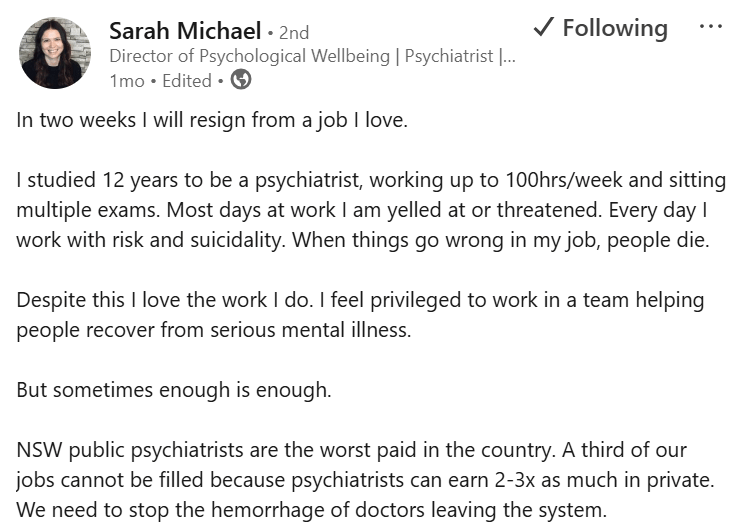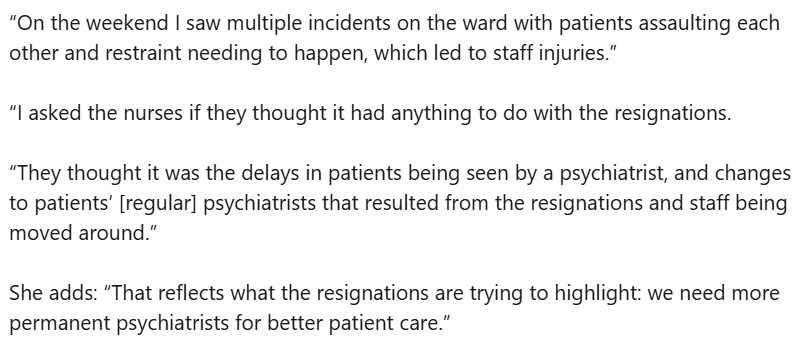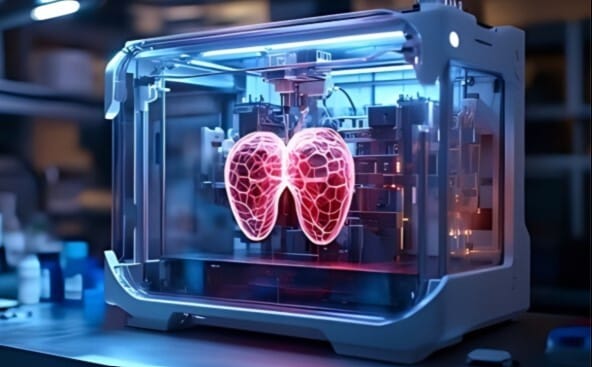- The Health Algorithm
- Posts
- Anti-Vaccine RFK Jr, Harrison.ai’s $179M, and the Psych Exodus
Anti-Vaccine RFK Jr, Harrison.ai’s $179M, and the Psych Exodus
Too Much to Ignore!
Hi everyone,
Here are some eye-opening, mind-blowing, and jaw-dropping facts!
But before that: Another 14 awesome nerds joined the newsletter this week!
Welcome to the club! 🤓🎉
The New Health Czar!

Robert F. Kennedy Jr, the same RFK Jr. known for his controversial views, has just been confirmed as the U.S. Health Secretary. One of his bold promises? To eliminate fluoride from public drinking water, despite its scientifically proven role in fighting tooth decay across the world.
But that’s not all. The anti-vaccine activist, RFK Jr., no stranger to contentious claims (for his comments linking vaccines to autism in children and suggesting that the COVID-19 pandemic was a government-planned inside job), now has a new role.
His vaccine scepticism has already made the news in the biotech world, with major vaccine producers seeing their stock dip. Australia’s CSL, for instance, dropped nearly 10%, hitting a 16-month low.
His view on the use of anti-depressants for mental health disorders might influence the future of mental health treatments, potentially impacting how the health agencies like the NIH and FDA fund and approve these medications.
The NIH has already cut funding into some research areas. 😢💔
AI Revolution in HealthTech Startups!
Harrison.ai, a startup leveraging AI to read X-rays and CT scans, has raised AU$179M in Series C funding for further expansion. The company has helped over 6 million patients across 15 countries.
This growth can increase access to healthcare, particularly in underserved populations and regions with limited resources. The U.S. has 11 radiologists per 100,000 people, but places like Kenya have a severe shortage, with only 0.35 radiologists per 100,000. Harrison.ai’s expansion could be a game changer, bringing some quality care to regions where healthcare has been a luxury for a long time.

AdvanCell, a radiopharmaceutical startup, is working to expand the supply of an isotope essential for targeted cancer therapy. The company recently secured AU$179M in Series C funding.
Diag-Nose.io, a biotech startup, uses proteomic data to predict respiratory disease activity and track treatment effectiveness overtime. This startup raised AU$5.0M in a seed funding round.
Crisis in Psychiatry!
Over 200 psychiatrists have chosen to resign following a 15-month standoff with the NSW government. While the state has promised a 10% pay rise over the next three years, the psychiatrists are demanding an immediate 25% pay rise. In response to the mass resignations, authorities have begun transferring patients to private hospitals, as the public hospitals struggle to cope with the strain.
By January 21, 2025, 205 psychiatrists (nearly 40% of the state’s 443 roles), had submitted their resignations. Although 25 later retracted and 81 postponed their exists, about 100 psychiatrists had already left the system by February 2025. This mass exodus is deepening existing staff shortages and even leading to bed closures in clinical facilities.
Psychiatrist Dr. Sarah Michael recently took to LinkedIn to share her personal experiences from the frontlines of a public hospital, shedding light on the complexities that led to this crisis.

Impact on Patient Care:
Emergency psychiatry: Drug/alcohol teams now triage mental health cases at Westmead, despite lacking specialist training.
Community care: Over 60% of outpatient programs halted, leaving 12,000+ patients without follow-ups.
Medicolegal risks: Psychiatrists face increased liability as understaffed wards discharge unstable patients prematurely.
Following the mass resignation, the situation has only worsen. Junior psychiatrist Dr Lauren Amor has stepped forward to share her firsthand experience form the frontlines as a junior doctor.

Did you know?
Black mothers in the US face significantly higher mortality and mistreatment rates during childbirth.
An analysis by the Commonwealth Fund in June found that in 2022, there were 22.3 pregnancy-related per 100,000 live births nationwide, but a staggering 49.5 for Black patients. For comparison, Norway had zero per 100,000 in 2022, and Australia had 3.5 in 2021, according to OECD health statistics.
The CDC reported in 2023 that 20% of the 2,407 surveyed US mothers experienced mistreatment during maternity care, such as being ignored or verbally abused, with rates climbing to 30% among Black, Hispanic, or multiracial mothers.
Scientists Found What?
A new trial showed that gradual peanut exposure in children with high-threshold allergies can induce tolerance. Participants consuming incrementally increasing doses of peanut butter over six months showed a 92% success rate in achieving safe consumption levels.
This protocol is now integrated into pediatric guidelines and highlights the benefits of early allergenic introduction.
This could be the next breakthrough like Ozempic: a USD$500 billion weight loss company!
A study published this month showed a specialized cluster of hypothalamic "stop-eating" neurons that activate after a specific number of bites. Using techniques in animal models, researchers demonstrated that stimulating these neurons reduced food intake by 70%, while inhibition led to overeating. This means sensors and bioelectronic devices can be used to modulate brain signals for those who suffer form obesity.
An approach to personalise treatment for cancer patients. How cool is this?
Scientists have successfully engineered patient-derived 3D bioprinted gastric tumors, preserving the tumor microenvironment. The microenvironment is very important for the development of the tumor.
These models allow real-time testing of chemotherapeutic interventions, with a recent trial achieving an 85% match between in vitro drug responses and clinical outcomes. This technology accelerates the shift towards personalised oncology care, particularly for cancers resistant to conventional therapies.

If you learned something new, now’s the time to subscribe to this newsletter to keep this going. Have a great week!